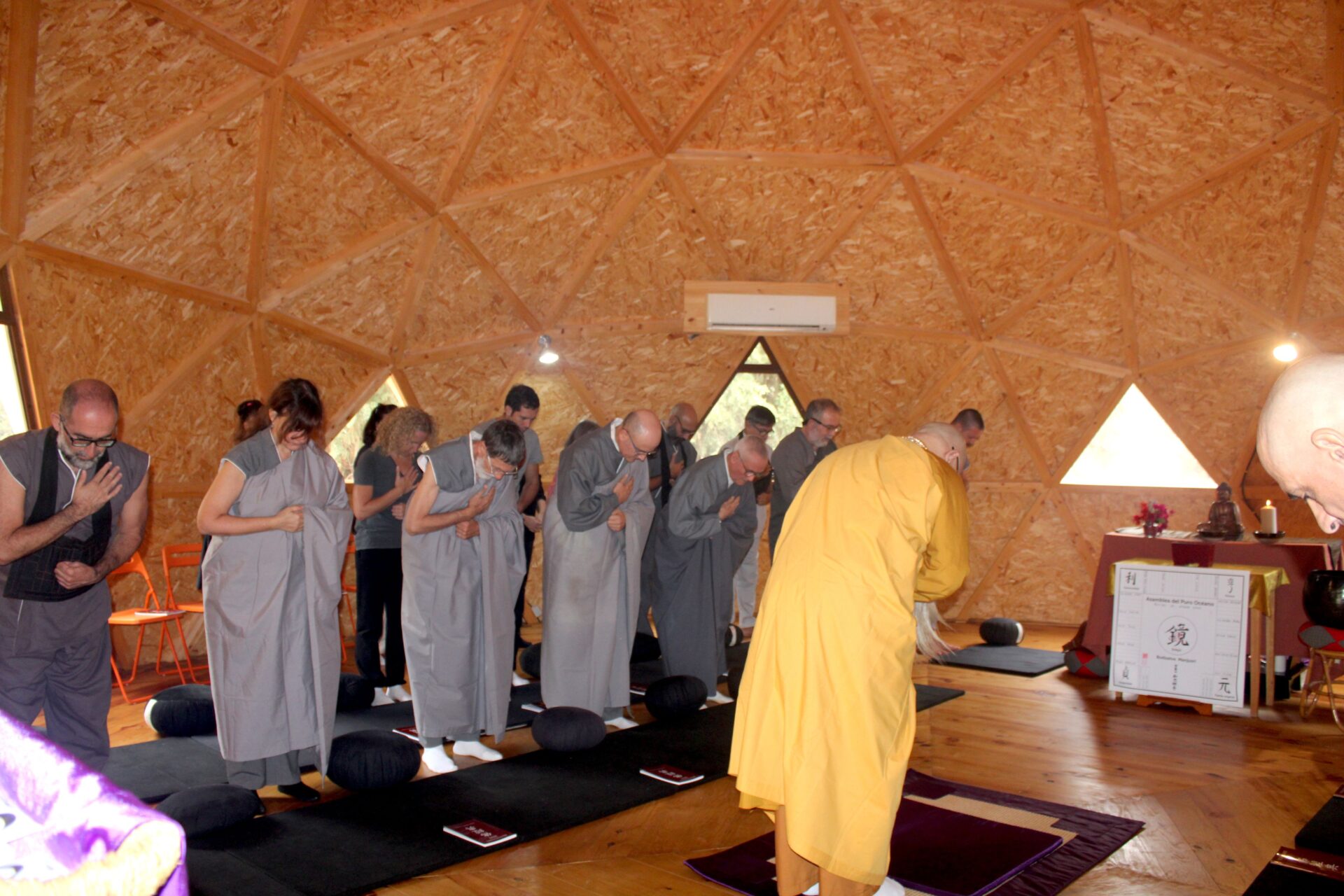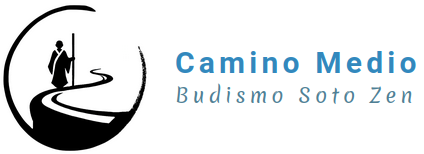⏱️ Estimated reading time: 5 min
In our ceremonies we offer the merits of our practice by the people who are sick, crossing difficult or recently died. In all cases, It is not a prayer in the conventional sense, nor of a plea to a superior being that intervenes from the outside. It is something more intimate and at the same time more vast: An expression of our interdependence, of our compassion, And of the confidence that all sincere practice has an echo beyond who performs it.
From the early days of Buddhism, The practice of dedicating the merits of meditation, of the study of Dharma or of rituals to other people has been present as an act of spiritual generosity. The Mahayana, The current of Buddhism to which our Soto Zen tradition belongs, He emphasizes this gesture as an essential part of the path of bodhisattva: practice not only for oneself, but for the well -being of all beings.
Dedicating merits for sick people is a concrete way to put into action the first of the four votes of the Bodhisattva: «As innumerable that are the beings, I vote for freeing them ». We know that the suffering of a disease, physical, Mental the emotional, touches not only who suffers from it, but also to their close beings. In that context, The offer becomes a silent network of care and accompaniment.
From a dualistic vision, It might seem that we are asking that "something" good happens to someone "out there". But in the deep understanding of the Zen tradition, There is no inside or out. When we recite the name of a sick person during the ceremony and offer the merits of our practice, We are recognizing that there is no real separation between it and us. His suffering is also our, And our commitment to the awakening includes your well -being. This act, therefore, It is not a spell or an external intervention. It is a natural manifestation of interdependence, of the invisible fabric that binds us to all beings.
We also dedicate merits for those who have recently passed away. When someone is going through this traffic, Our practice can accompany your trip. When reciting his name and dedicating the merits of zazen, of ceremonies and the conscious presence gathered in community, We affirm that it is not alone. What, Although we can't talk to you anymore, embrace or take care of him in the usual sense, We continue to share with her the energy of awakening. It is not a blind belief about what happens after death. Offer merits at the time of traffic is our way of saying: «Here we are. We accompany you. That you can release with confidence ».
In our ceremonies, When the officer mentions those who are sick or deceased, names are pronounced with respect, with full attention. Maybe that person is hospitalized, crossing a difficult treatment, or maybe simply plunged into a sling sadness. Maybe he died just a few hours or a few days ago. By naming her, We bring it to our awareness. We make a place in the sacred space of our practice.
It is also important to understand that the benefit of this act is not limited to who receives the dedication. Who offers also transforms. Opening to the suffering of others without falling into dejection is one of the deepest qualities of compassion. It is not pity or sentimentality, but lucid equanimity. Each time we recite, Every time we name, We are awakening that quality in ourselves and ourselves.
Many people who first attend a Zen ceremony are surprised when they listen to the names of other people read aloud. It may seem something mysterious, almost cryptic. But in reality it is one of the most human and transparent gestures of our practice: say "you are in our mind and in our heart", "We don't forget", "We practice with you".
In the Soto Zen Camino Medio Community, We open the possibility that those who participate in the ceremony write on paper the names of loved ones who are sick, in duel or recently deceased, so that they can be included in the dedication. Sometimes they are known names, other times "a friend who has died this week". It doesn't matter: The sincere intention is sufficient.
When we talk about sick people, We do not refer only to body ailments. Zen does not separate the physical from the mental, The emotional or the spiritual. The disease, From our perspective, also includes uprooting, loss of meaning, Interior disconnection. Offering merits is, also, offer light where there is confusion. We do not give answers or solutions, But we support the possibility of awakening in pain.
And when we talk about deceased people, We do not do it from nostalgia or possessiveness, but from the recognition that your process continues. We dedicate our practice for your trip to be bright and your conscience, as far as possible, can move serenity.
Just after the offer to sick and deceased people there is also a moment of silence in which each practitioner offers internally the merits of the practice to whom or what comes to the heart at that time. It can be someone close who is suffering, A situation that needs light, an intention that is born from the deepest. It is not named out loud, It is not written in any role, But it is held with full presence. This shared silence, of the form of sword, It is perhaps one of the most powerful acts of the ceremony. An invisible offering, born of zazen and of the heart awake.
Dedicating the merits of our practice is a way of caring. In a society that often medicalizes suffering and relegates it to the individual sphere, The community gesture to name, of accompanying, not to forget, charges a healing force itself. There is no show, There is no prominence. So, Each ceremony becomes a space where practice becomes body and relationship. Where zazen It is not only in the practice of the cushion, but breathe through concrete care towards other people. Where the Dharma It is offered not only as teaching, but as a presence that embraces.

